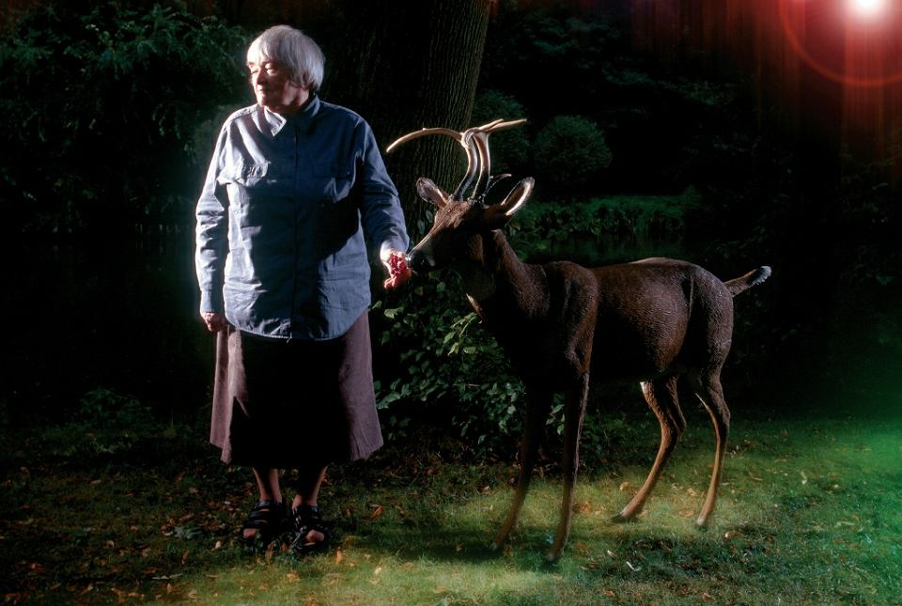 Can a story about Slavdom and about Poland be told from a postcolonial critique?
Can a story about Slavdom and about Poland be told from a postcolonial critique?
(Janion 2006:10)
Maria Janion (1926-2020) was a literary historian, feminist and scholar of Polish Romanticism. Her work interrogated postcolonialism in Central Eastern Europe focusing on themes of Otherness and Othering and bringing to centre stage the unreckoned with history of Polish racial exclusions. Janion has written over 30 books and hundreds of papers, the vast majority in Polish and untranslated.
Her most significant contribution to post-colonial studies is her book Niesamowita Słowiańszczyzna [Uncanny Slavdom] where she traced the genealogy of an entangled and deeply troubled national identity attributing it to the loss of Slavicness which, she argued, continues to haunt Slavic people (2006). Her claim was that the Christianisation of Polish Slavs and loss of the Slavic pagan identity resulted in deep trauma and a loss of heritage that reverberated throughout its history. Tracing the romantic spirit of Slavic people that have accompanied Polish history from the Partitions to the uprising and the pro-democracy movement Solidarność [Solidarity], Janion wished to salvage it but not without recognising its violence, often expressed through anti-Semitic discourses.
Janion worked with Said’s concept of Orientalism to make sense of Poland’s complex relationship with colonialism. Having been claimed and reclaimed and disappearing from the maps of Europe for over a century deepened a national sense of inferiority that was already in place since the middle-ages when Slavdom was first rejected. Analysing texts of 19th century historian Leopold von Ranke, Janion shows how Slavic people were considered as ‘silent extras’ in the ongoing developments in Western Europe (2006: 165). At the same time, Poland also had colonial ambitions and desired to cut itself off from the East. Poland’s Slavdom was considered as something ‘untamed, perhaps inhuman’ (Janion 2006:165) and so was left behind for a modified concept of Central Europe that accounted for those countries that were supposedly culturally ‘closer’ to the West. Janion was critical of the concept of Central Europe which, to her, in itself was a rejection of the imagined community of Slavdom. Her conviction was that there was nothing particularly common that historically binds countries of Central Europe such as Poland, the Czech Republic and Hungary.
‘To Europe yes, but only with our dead’ (2004)
Her scholarship brought out pain and embarrassment, things Slavic people have suppressed, such as their deeply entrenched anti-Semitism. Ahead of Poland’s 2004 accession to the European Union Maria Janion wrote a book called ‘Do Europy tak, ale razem z naszymi umarłymi‘ that translates to ‘To Europe yes, but only with our dead’. The book, meant as a reminder of the pain inflicted upon Jewish communities on Polish lands, was a message to Central Eastern Europe to not forget its past as it formally joins Europe. In 2017, Janion wrote: ‘So many young people travel West, there they meet with strong cultures and lose the sense of their own genealogy. Perhaps it would be good if they were not ashamed of the fact that they are Slavs’. It pained her that Polish people cared little about their Slavic past when they ‘bid farewell to Poland’ (2011: 5). To Janion, the Slavic romantic spirit had a role to play, not only in tracing back its roots, with the good and the bad, but also as resistance to the violence of capitalism and imperialism.
Although she was a scholar who ‘lived in the library’ Maria Janion was also a feminist and activist. In her book ‘Kobiety i duch inności’ [Women and the spirit of otherness] she wrote about gendered nationalism in Poland. Janion was one of the signatories of the ‘Letter of 100 women’ [List Stu Kobiet] in 2002 that was published in protest of the government’s refusal to change the abortion law ahead of the EU accession due to pressure from the Catholic Church. Late in life, at the age of 86, Maria Janion came out as lesbian, marking a significant moment for the Polish LBTQ community.
Essential Reading:
Janion, Maria (2006) Niesamowita Słowiańszczyzna [Uncanny Slavdom], in Polish
Janion, Maria (2012) Farewell to Poland? The Uprising of a Nation, Baltic World, 4, 4-13
Kulawik, Teresa and Ingbrant, Renata (2011) Maria Janion. A tree spreading seeds. Baltic Worlds, 4, 4-12
Further Reading:
Chibner, Daria (2020) “Poland lies nowhere, it is a universal idea”: Maria Janion, uncanny Slavdom and Polish identity, Notes from Poland
Coates, Ta-Nehisi (2014) ‘To Europe—Yes, but Together With Our Dead‘, The Atlantic
Questions:
How can we productively think about colonialism in the region of Central and Eastern Europe and what are the challenges of applying postcolonial and decolonial theory to Central and Eastern Europe?
What does Maria Janion mean when she says ‘to Europe yes, but not with our dead’ – how is this significant for other ‘postcolonial’ contexts? Consider Ta-Nehisi Coates short piece in the Atlantic for context of slavery.
Discuss the importance of Janion’s arguments in understanding the current nationalist ‘anti-colonial’ rhetoric across Central and Eastern Europe
Submitted by Kasia Narkowicz
Image Credit: Igor Omulecki / FORUM